Hinduism venerates animals as part of the Sacred, with cows holding a unique, celestial status, symbolizing virtue, prosperity and purity
Story By Padma Krishnan
All Photos By Anne Petry
In hinduism, animals and birds are elevated to divinity, in their association with Gods and Goddesses. This role might intertwine with the Deity Themselves, such as with Lord Ganesha’s elephant form, or it might betoken the vehicle that carries Them—like the beautiful peacock Lord Murugan rides. In their Divine forms such as Nandi and Garuda, animals are worshiped. In their physical forms they are deeply honored. The docile cows are special; it is said Lord Siva rides the white bull, Nandi, and cows are prominently featured in stories of Krishna. They are honored across India and celebrated in rituals and festivals.
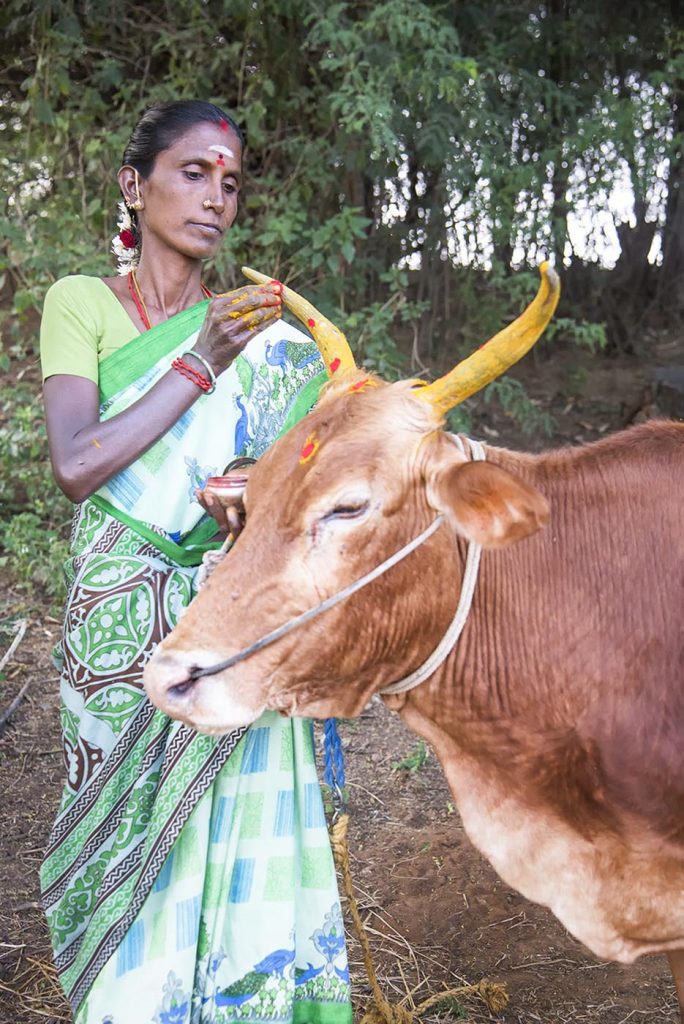
The Siva Purana extols the cow as a symbol of virtues in life, declaring that all other creatures live only because of the cow. Beyond providing milk and dairy products, cow dung is used as a purifying substance and fuel, while cow urine has medicinal properties according to ayurvedic tradition. Cows hold a status far more significant than pets or farm animals; they are revered as the Mother Goddess, often in the form of Lakshmi, rooted deeply in ahimsa, nonviolence, a key tenet of Hindu dharma.
Traditions and stories reinforce the sacred status of cows. Killing a cow is considered a grave sin with repercussions believed to span many lifetimes, while protecting and feeding cows earns good karma. These ideas are told and retold in many scriptures.
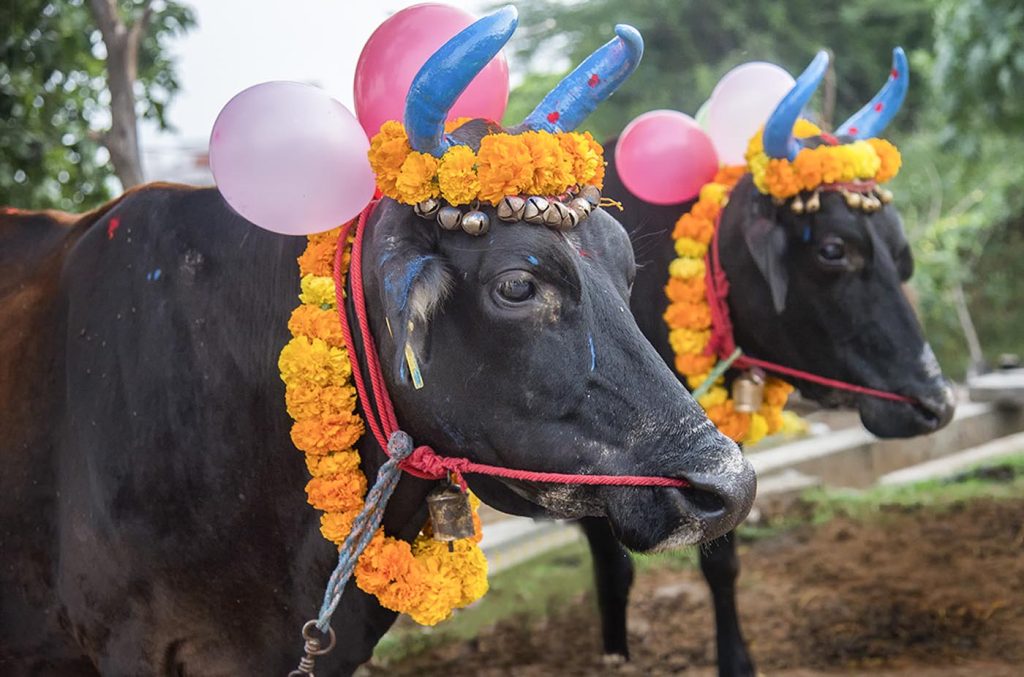
One well-known story is the birth of Kamadhenu, the wish-fulfilling divine cow, from the Samudra Manthana—the churning of the cosmic ocean. Kamadhenu, portrayed as a radiant white Zebu cow with the head of a woman and eagle wings, is believed to have the power to grant wishes. According to various Puranas, her body contains the whole legion of Hindu Gods and Goddesses, and honoring a cow is akin to worshiping all Deities.
The holy cow is revered in various forms, such as Sunanda, Surabhi, Sumana, Susheela and Nanda. For many, Surabhi, created by Lord Krishna, is considered the mother of all cows on Earth. The five essences, Panchagavya—milk, curd, ghee, dung and urine—hold significant religious and spiritual importance in Hindu rituals and ayurvedic medicines.
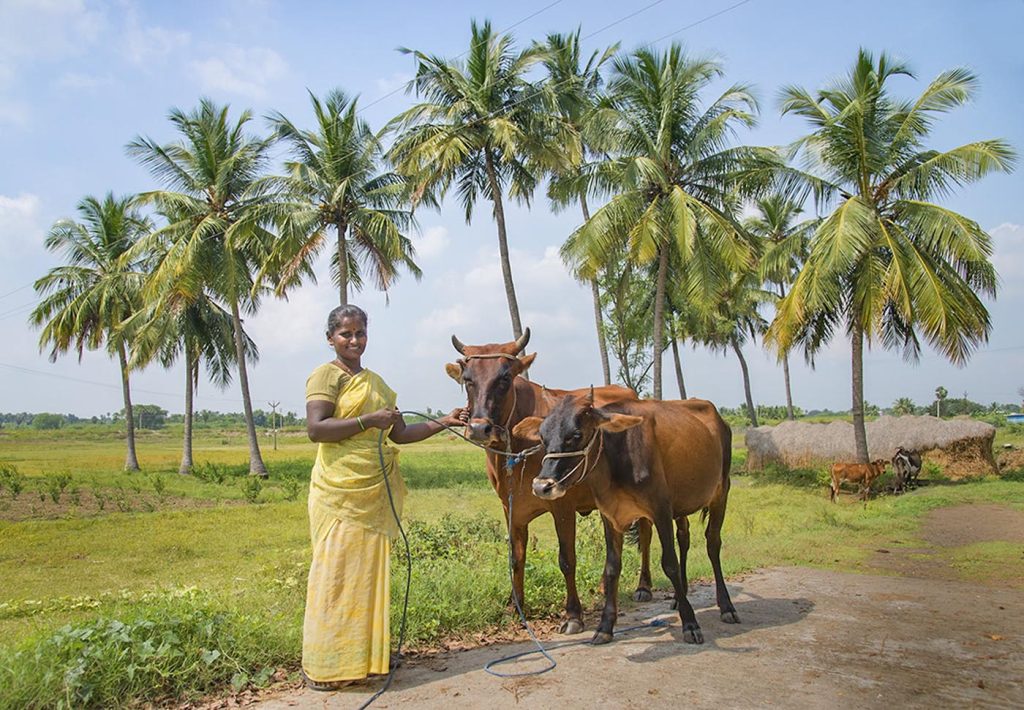
Several festivals honor cows, reflecting our deep reverence and gratitude towards these sacred animals. The Gopashtami festival commemorates Lord Krishna’s role as a cowherder, celebrated with joy and reverence in temples like Vrindavan and Mathura. During Govatsa Dwadashi, which begins the festivities of Diwali, devotees express gratitude by offering grains, fruits and sweets to cows, symbolizing nourishment and prosperity. Govardhan Puja marks the legendary event where Lord Krishna lifted the Govardhan hill to protect villagers from torrential rains, with cows and calves celebrated alongside the divine Cowherd and the hill.
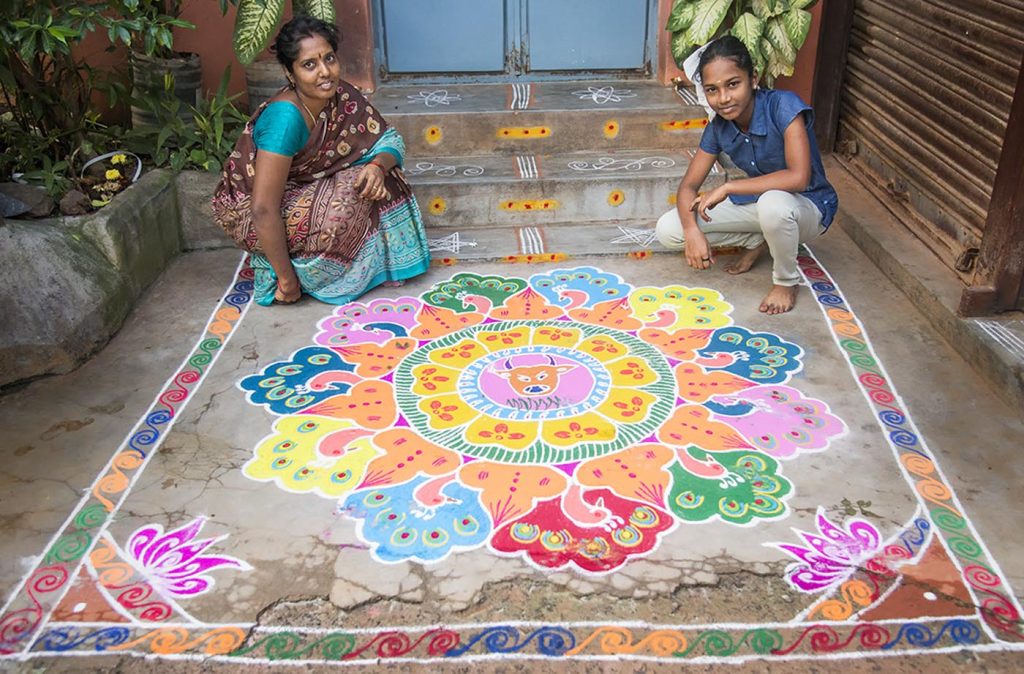
In South India, Mattu Pongal, part of the harvest festival of Pongal, is dedicated to honoring cows, bulls and other farm animals, acknowledging their role in agriculture. Makar Sankranti, coinciding with the harvest season, sees cows adorned with floral garlands and fed special food, recognizing their vital contribution to agrarian communities. The unusual festival of Gorehabba in Karnataka celebrates the cow, and even involves playful battles in cow dung, believed to bring good fortune and ward off evil. These celebrations highlight the integral role of cows in Hindu culture and agrarian life, reinforcing their sacred status and the principles of compassion and gratitude. Aside from festival traditions, cows hold a central place in daily rituals and customs across Indian communities. Gau puja, the veneration of cows, is a common practice in temples and households. This reverence has led to the establishment of Gaushalas, cow shelters, across India, preserving native cow breeds and caring for abandoned and aging cows.
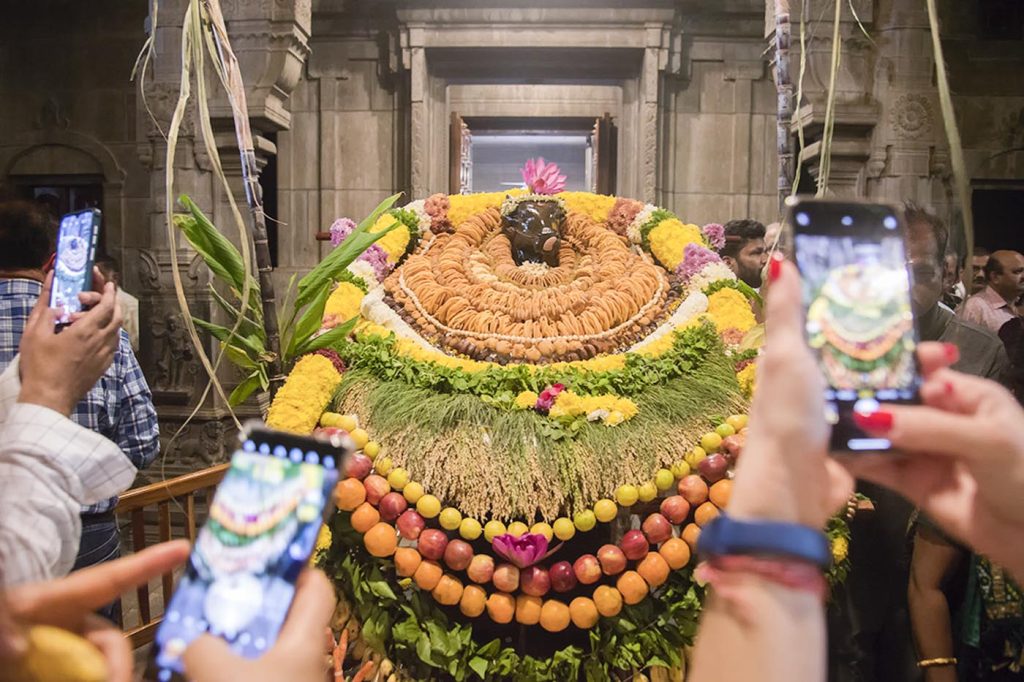
The reverence for cows is intertwined with principles of ahimsa, karma and the recognition of the Divine in all beings. Through festivals and rituals, cows become conduits for experiencing the divine presence in everyday life, encouraging compassion and a holistic understanding of our place in the universe. Embracing these teachings can cultivate a more spiritually enriched way of life.
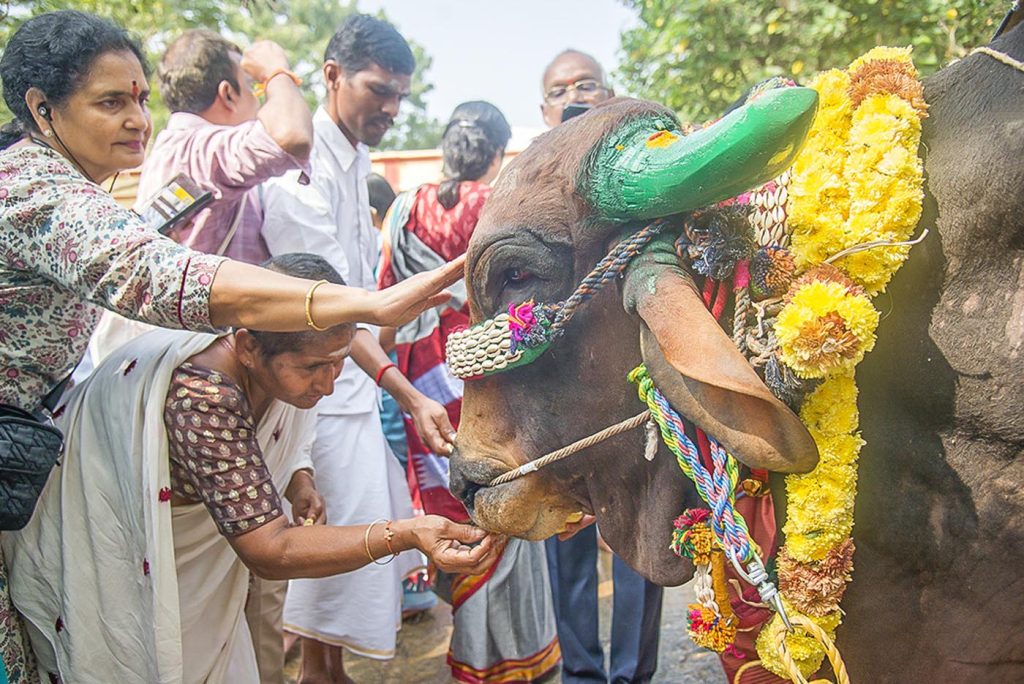
Pingback: The Divine Bovine | Harmonist